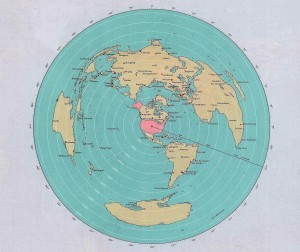
If Obama hasn’t plunged the U.S. directly into Syria’s conflict, that proves that he isn’t foolish. It doesn’t make him a “balance-of-power realist.” The Libyan war is the obvious example that Marshall tries to avoid discussing at any length, since it renders a large part of his argument void. Put simply, a “balance-of-power” realist would not have ordered military action in Libya, and he would have been right not to do so, and the fact that Obama did should be a clear signal that he isn’t any such thing.
The argument is, however, of a type that soon dissolves into dialectical absurdities: Larison seems to be arguing, in effect, for an ideal realism, a position that raises the question as to whether ideal realism is really the ideal form of realism.
Would a really realistic realism ignore the reality of idealism? Ideally, in other words really, I don’t think so. Wouldn’t a true realist have to take into account the commitments and central aspirations, which will be necessarily (really) both realistic and idealistic, of members of his coalition both domestically and internationally, and might not factors beyond the narrowly defined “real” local or regional political and military situation play a significant role in any truly realistic accounting? If your goal (indeed, your ideal) is a major or even radical reduction in U.S. entanglement in the affairs of other nations and an end to missionary foreign policy, especially armed missionary foreign policy, is it actually “realistic” to imagine a total reversal of direction in several generations of American neo-imperialism?
Opinions differ on whether the Libya intervention was actually good for the region or for the Libyans, and Larison has devoted substantial attention to criticism of the policy on those terms, but from a seriously realist perspective such concerns are at best secondary until and unless they can be shown actually to have harmed one’s own interests. For a realist, we have as little or as much reason to care about the state of things in neighboring Mali now as we did before. Put differently, if “things in Mali” are of great interest to us now, then what things where are not also of great interest to us, and what does this universal great interest in everything do to a realist notion which presumes the opposite stance?
If it turns out to be true that the Libyan intervention was on its own putative missionary-democratic or responsibility-to-protect or other humanitarian (i.e., idealist) terms some kind of failure, then it may weaken idealist pretexts, but, for someone who never believed in them in the first place, it is not actually very useful information. From a consistently realistic perspective on presidential decisionmaking, idealist failures are matters of complete indifference until and unless they are demonstrated to have harmed either the president’s or America’s interest in any relevant time frame.
On that note, it’s also worth considering possible purposes beyond the central pretext, even beyond the political benefit gained from the general belief, mistaken or not, that the intervention was in fact successful. Could experiments with an alternative model for dealing with regional crises serve the larger purposes of such a transition, or function under other arguably quite realistic interpretations of U.S. grand strategy? If in some instances the desired ends are served by policies that also happen to appeal to proponents of a more “idealistic” conception, so much the better, as long as no one gets carried away, or makes the mistake of exporting the “brilliant success” in Libya to superficially similar, actually completely different situations like Syria (or Bahrain, or Iran, etc.).
Realistically, a merely more rather than ideally realistic policy may be as much as is really achievable, and for any realist president will remain the ideal.


 ). Go to our
). Go to our 
Great post. The real concern was with sustaining the present international system and preserving the trajectory of the United States’ rehabilitation within it. Tending to constituencies, in this case the earnest R2Pers. From a realist U.S. perspective, Lybia was just the unhappy fellow who ended up in the wrong place at the wrong time (or maybe the IC actually did some good there – who knows, who cares?). This is cynical as hell. That’s a telltale sign.